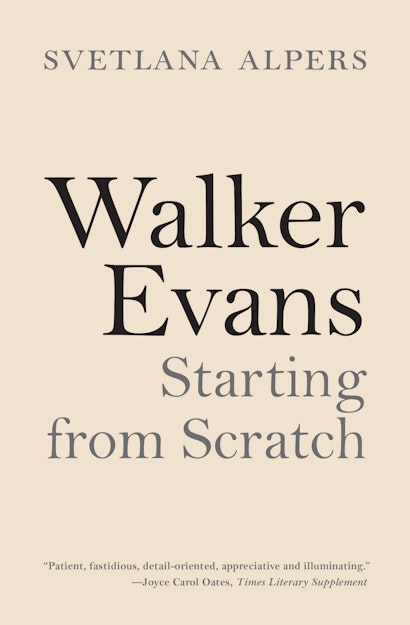In Starting From Scratch, art historian Svetlana Alpers’s biography of the American photographer Walker Evans, the images come first. All the classics are here: the iconic Great Depression–era portraits of white tenant farmers; the economic immiseration contrasting with natty, white-suited cool in his pictures from Cuba; the subway portraits surreptitiously taken using a hidden camera. They are joined with lesser-known works that index the interior and exterior architecture of an America that was already receding into history in Evans’s time. Dilapidated buildings and the tattered, upholstered violence of once glorious plantation homes are captured alongside so many wagons, statues, and show bills—an Americana that slept in its makeup the night before and looks fragile in the light of day. A corrugated tin facade, its variegated surface palimpsestic with faded ads, a pile of dirt out front. A frowning woman in a cloche hat and furs on a busy shopping street. A spiny succulent bursting out of a bucket marked “TRIPLE WHITE,” floral wallpaper, a tiny American flag.
First we see, then we read, and it feels right. Evans was the rare photographer who preferred publishing in print over being exhibited, and indeed he is best known for books like American Photographs (1938) and Let Us Now Praise Famous Men (1941), with its text by James Agee. “From the start,” Alpers explains, “Evans imagined seeing his photographs not in, but as a book, a book about America.” A 1933 letter by Evans is notable for the way it prefigures both these later volumes and a very contemporary understanding of the photographer as someone who selects images from the multimedia stream that surrounds us today, whether or not they took them themselves:
A wonderful volume is waiting to be done which would describe America, to ourselves as well as to strangers, entirely by means of pictures—photographs of America, machines, factories, and landscapes, portraits of American faces of low and high degree, intelligent selections from news photographs and the contents of the Sunday photo-gravures.

